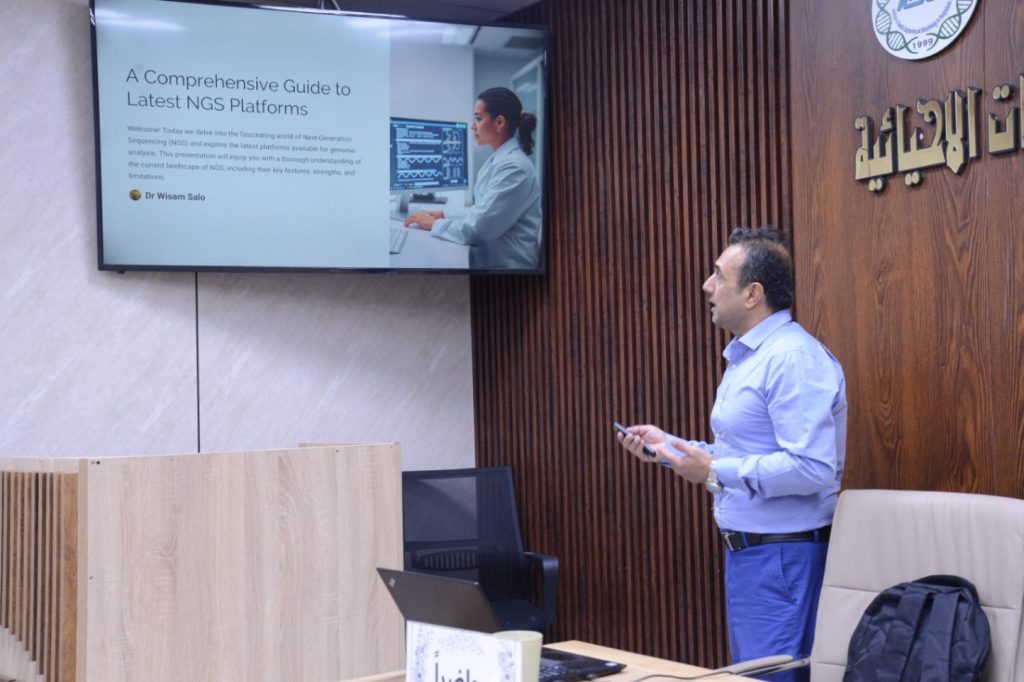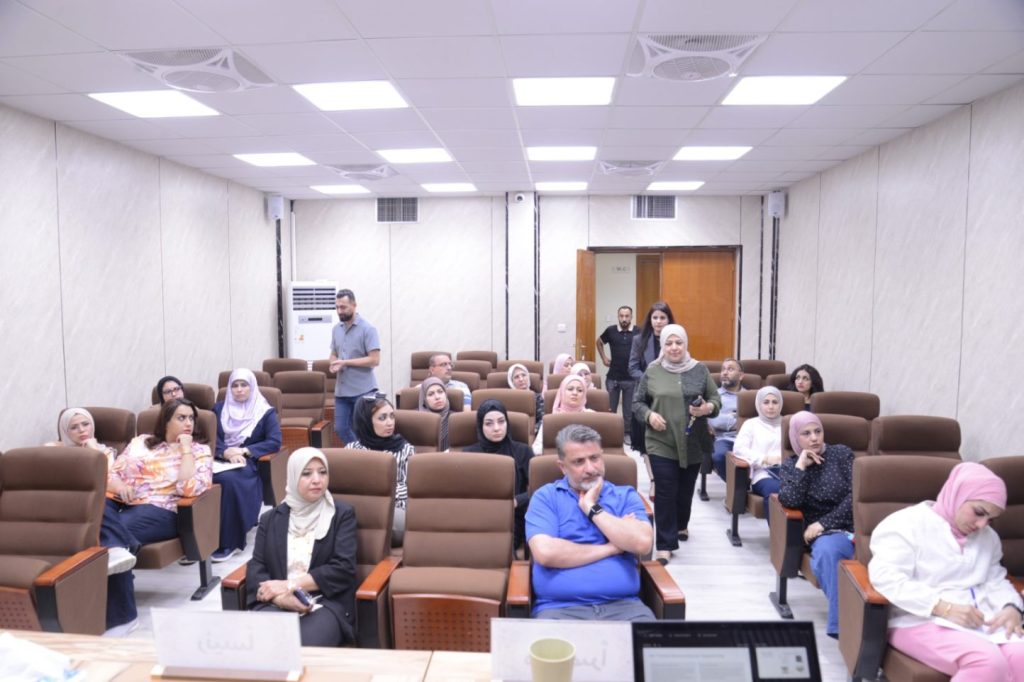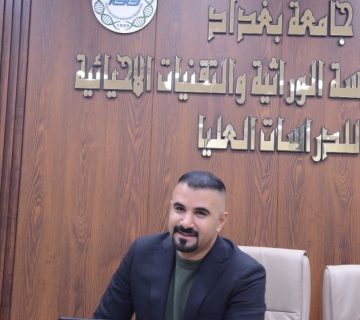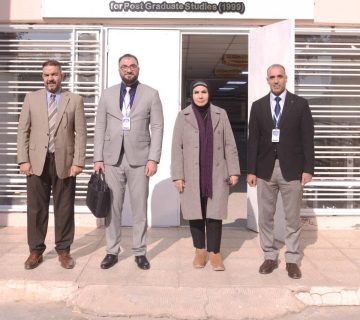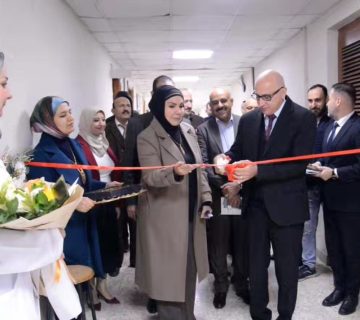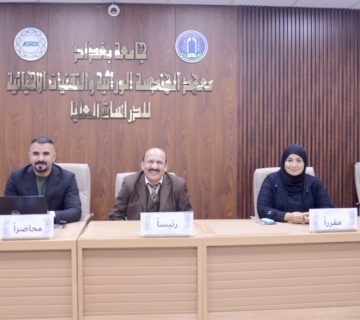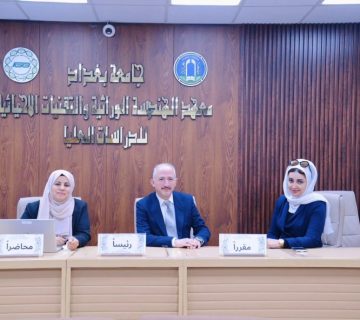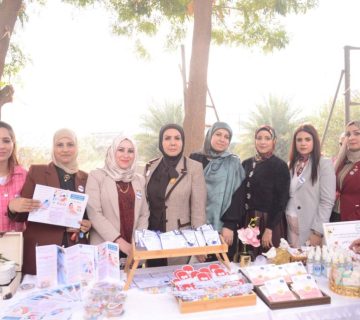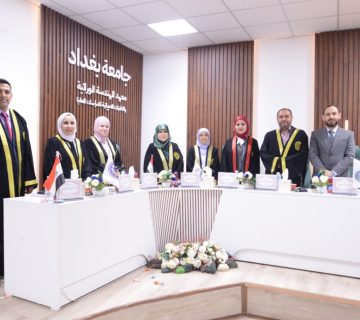The Institute of Genetic Engineering and Biotechnology for Postgraduate Studies / University of Baghdad organized a scientific symposium on “The Latest Developments in NGS Technology”, delivered by Dr. Wisam Hazem Salo (Lecturer) as the speaker, with Dr. Ali Imad Mohammed (Assistant Professor) as session chair, and Ms. Sarah Mahdi Shalash (Assistant Lecturer) as rapporteur. The event was attended by a number of faculty members, staff, and students of the Institute.
The symposium aimed to introduce the concept of Next-Generation Sequencing (NGS), explain its working mechanisms, and highlight its broad potential in supporting researchers and specialists across various scientific fields. It also presented an overview of modern NGS platforms and instruments, clarifying the technical advantages of each in terms of accuracy, processing speed, and efficiency of outputs.
The discussions further emphasized the research and medical applications of NGS, including its role in detecting genetic mutations and hereditary diseases, studying biomarkers and gene expression, and raising the awareness of postgraduate students and researchers about the importance of these platforms in enhancing their research capabilities, thereby positively impacting scientific productivity and the quality of research outputs.
The symposium recommended increasing the number of specialized seminars and training courses on NGS to enable researchers and postgraduate students to keep pace with global developments. It also encouraged stronger collaboration between universities, research centers, and hospitals to apply NGS in medical diagnostics, treatment of genetic diseases, and forensic medicine.
Additionally, the symposium stressed the importance of establishing specialized NGS laboratories within academic and research institutions to serve as scientific and training references for students and researchers. It also called for motivating researchers to apply NGS platforms in applied studies, particularly in critical areas such as detecting antibiotic-resistant microbes, protein studies, and bioinformatics data analysis.
This symposium contributed to achieving two Sustainable Development Goals (SDGs).
-
Fourth goal: Quality Education – by focusing on training graduate students and researchers, and enhancing their knowledge and skills in advanced genomic technologies.
-
Ninth Goal: Industry, Innovation, and Infrastructure – by recommending the establishment of specialized genome sequencing laboratories, thereby strengthening the research infrastructure and innovation capacity of Iraqi scientific institutions.


